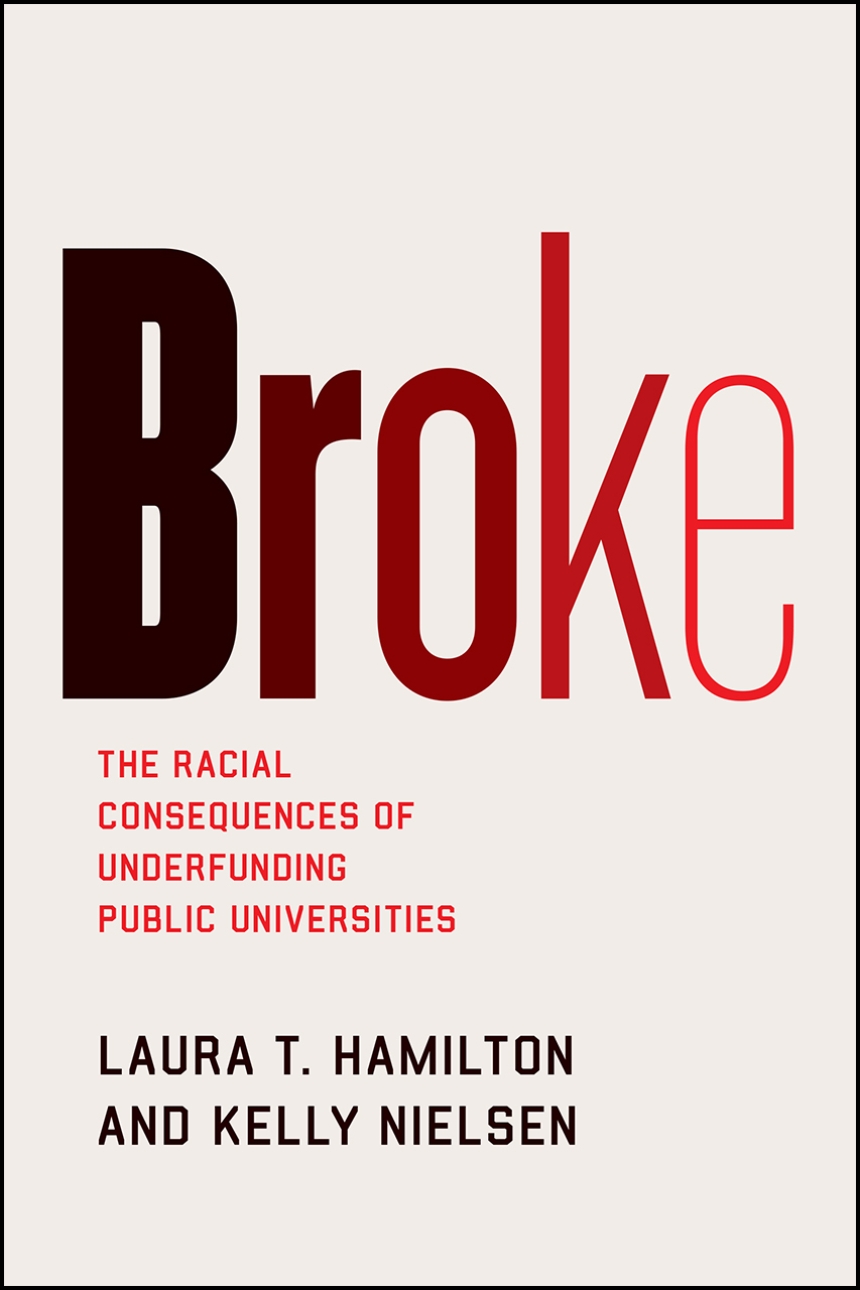Broke
The Racial Consequences of Underfunding Public Universities
Broke
The Racial Consequences of Underfunding Public Universities
In Broke, Laura T. Hamilton and Kelly Nielsen examine virtually all aspects of campus life to show how the new economic order in public universities, particularly at two campuses in the renowned University of California system, affects students. For most of the twentieth century, they show, less affluent families of color paid with their taxes for wealthy white students to attend universities where their own offspring were not welcome. That changed as a subset of public research universities, some quite old, opted for a “new” approach, making racially and economically marginalized youth the lifeblood of the university. These new universities, however, have been particularly hard hit by austerity. To survive, they’ve had to adapt, finding new ways to secure funding and trim costs—but ultimately it’s their students who pay the price, in decreased services and inadequate infrastructure.
The rise of new universities is a reminder that a world-class education for all is possible. Broke shows us how far we are from that ideal and sets out a path for how we could get there.
288 pages | 7 halftones, 3 line drawings, 1 table | 6 x 9 | © 2021
Education: Education--Economics, Law, Politics, Higher Education
Sociology: Race, Ethnic, and Minority Relations, Social Institutions, Social Organization--Stratification, Mobility
Reviews
Table of Contents
The Changing Face of the UC
1. Battle with the Rankings
2. P3 Paradise
3. Running Political Cover
Responses to Underfunding
4. Austerity Administration
5. Tolerable Suboptimization
Dealing in Diversity
6. Student Labor and Centers of Support
with Veronica Lerma
7. Marketing Diversity
Breaking the Cycle
Methodological Appendix: On Being White and Studying Race
Notes
References
Index
Awards
Society for the Study of Social Problems: C. Wright Mills Award
Finalist
University of Louisville: Grawemeyer Award in Education
Won
ASA Occupations & Organizations Section: Max Weber Award
Honorable Mention
ASA Section on Sociology of Education: Pierre Bourdieu Award
Won
